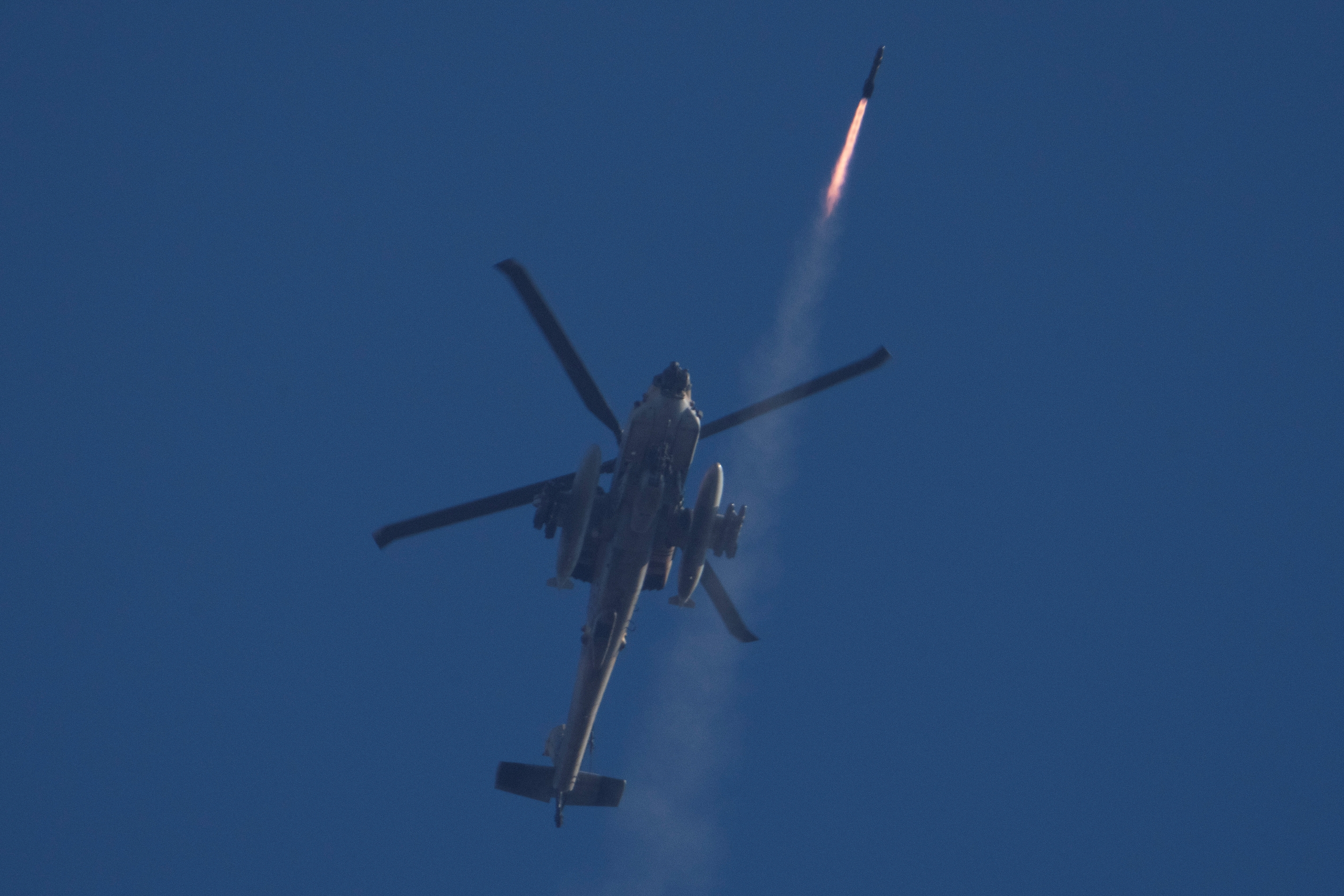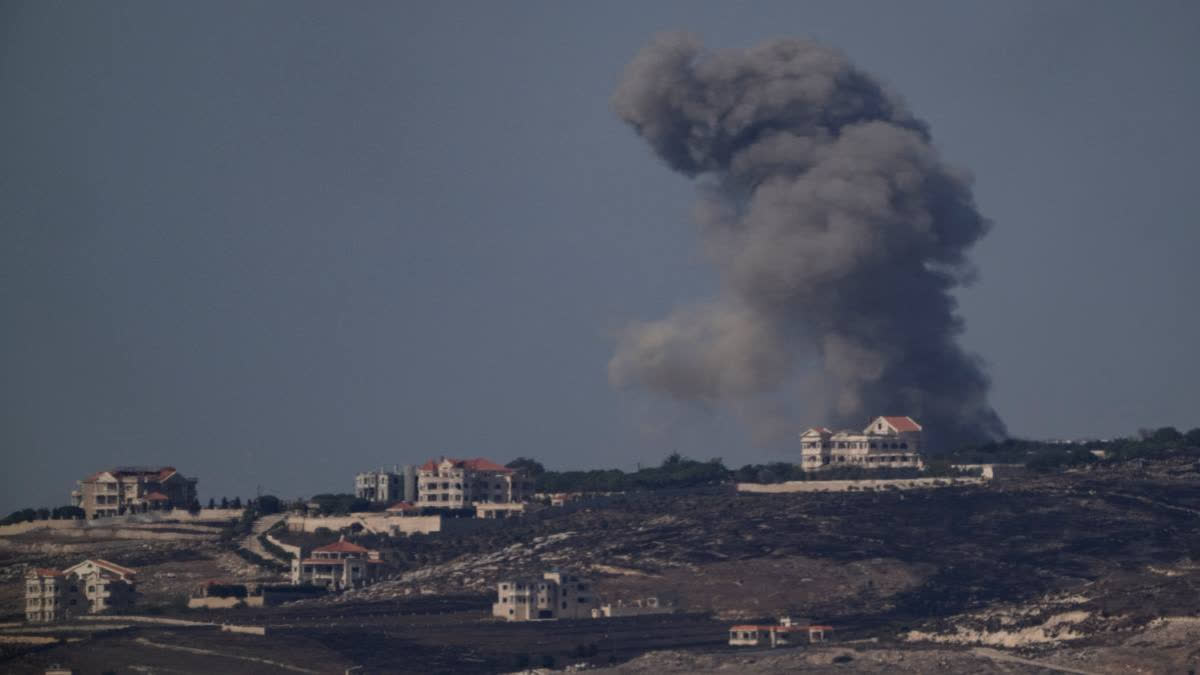How do you predict in extremely volatile and uncertain times what will happen next? All the old tools that ascertain the future look crusty and outdated after how Artificial intelligence (AI) was used to assassinate key actors and manipulate the outcome of this conflict.
This commentator was proved wrong when responding to a similar question a few weeks ago--will Iran retaliate after the assassination of Hamas leader, Haniyeh? The answer was embedded in a basic understanding of how decision-making takes place in Iran, a country smothered by sanctions by the US at one level and another by an unfulfilled desire for greatness spurred by an old civilization. I was proved wrong. The big question now for me and the rest of the world is will Iran be devastated by US-Israeli firepower? And are we heading to a bloody World War 3? And why?

Returning to the original question of why Iran’s response completely metamorphosed from a somnolent and complicated military power to one that would not allow Israel or the US to walk all over them. The assassination of the Hezbollah leader, Hasan Nasrallah, and the brazen air attack on Lebanon was the turning point. Not only did Israel--with open support from the US army-- tear apart the protective layers that surrounded the Hezbollah leader, but they also zeroed in on his presence by using very advanced AI-driven surveillance software that could sniff out Nasrallah’s presence by geolocating him through his address to his faithful.
Media reports suggest that Nasrallah was bombed out through bunker buster bombs from his hideout, which was 60 feet below the ground. Latest reports say that his hideout was secure, but how the bunker buster bombs were used to demolish the buildings also sucked the oxygen from his living quarters. For a few days, Israel made it amply clear to the Arab world that it was ready to reorder the map of the Middle East by de-fanging countries like Iran and others.

A beaming Israeli PM had given a call to Iranians to throw out the Shia clergy that ruled this ancient land. Thereafter, the capital Tehran also saw demonstrations against the moderate leadership of Iranian President Masoud Pezeshkian, who was criticised for not taking revenge against the assassination of key allies like Hasan Nasrallah. Iranians as a people do not do anything in a hurry. Though they never forget an insult, they take their own time in retaliating against their enemy.
Perhaps they would have not hastened to take action against Israel-cognizant as they were aware of the harm they could experience from retaliation from US-backed Israel. Fearing a coup or increased domestic turmoil, the Iranians mounted a big attack consisting of ballistic missiles. Iran claimed that they sent 180 missiles, including a few high-speech hypersonic missiles. Many of them met their targets. Bizarrely, only one Palestinian was killed and not a single Israeli was killed.
Reports suggest that the airport from where the F-35 took off was damaged. In other words, the missile attack made it clear to the US and Israel that their enemies had enough firepower to destabilise their plans. While the Iranians may have gone ahead and made an example of what they are capable of, what is clear is that Israel will find it difficult to survive in a hostile neighbourhood if its enemies do not respect it for its superior fire and brain power.
What will Israel do?
Israeli Prime Minister Bibi Netanyahu, who was looking invincible after assassinating Hasan Nasrullah, was frothing with rage after the Iranian retaliation. Looked very surprised by the hundreds of missiles that came his way. It seemed he was assured by his Western protectors that Iranians would not do anything to provoke US and Israeli provocation. There is merit in this suggestion as reports that have emerged show that Hasan Nasrallah was keen on a ceasefire deal with Israel and even Iran was not averse to it. Either this was a red herring to lull Nasrallah into complacency to allow the killers to perpetrate their heinous agenda or someone else sabotaged the peace move? By the look of it, both the US and Israel were complicit in the assassination which makes it clear that there was no sabotage and Tel Aviv could well do what is expected to do in the coming days-- carry out its threat to bomb all the corners of the Middle East. What aggravates this promise is the counter-threat from Iran, which was careful about choosing its targets when it sent its missiles last Tuesday. Iran has said that if the Israelis target its ample oil and gas refineries then they would not spare any unprotected refineries in the neighbourhood in Bahrain, Iraq, Kuwait etc. Can the US and Israel afford this? Iranians have also claimed that they would send more missiles to Israel than last time.

For some bizarre reasons, Israelis are keen to widen their scope of military incursions. They not only attacked Gaza, but also sent ground troops to Lebanon. Going by their past tactics, every time the Israelis have gone to war, they have occupied more lands and become bigger. Their land invasion smelt of imperial conquest. Iran may have stalled it for the time being, but can Israel be stopped from sending its F-35 and stealth bombers to take out refineries and nuclear facilities that Iran accuses are being used to build the nuclear bomb?
Its allies like the United Kingdom and France have shown reluctance to go on bombing raids with the US and Israel. They are discouraging Tel Aviv from hitting out against Iran, but the war is unlikely to stop till the US has a new President. If Donald Trump becomes the President, wars will end in Ukraine as well as in the Middle East. The return of the Democrats could see a deepening of the arc of violence.
As elucidated above, Israel is trying to drag Russia into this quagmire of new and old animosities. If Russia gets into this war, we can’t even imagine how this will play out. Some are predicting a Third World War. Does this face-off have the making of one? Is the rise of Netanyahu similar to that of Adolf Hitler as Iran is saying or a war is needed to tame Russia and China to prevent them from de-dollarizing the world economy?
The bright side to this horrific conversation is those who deal with oil futures are saying that there would be no war between Iran and Israel as the oil prices are not rising in anticipation of war. The prices are steadily low.



